Smart Budgeting for Freelancers: Manage Income Like a Pro
Learn how to create a smart budget as a freelancer, manage irregular income, and stay financially stable with these expert tips.
Learn how to budget effectively as a freelancer and take control of your finances!
Freelancing offers freedom and flexibility, but it also comes with financial uncertainty. Unlike traditional employees with steady paychecks, freelancers must navigate fluctuating income and unpredictable expenses.
Creating a smart budget ensures stability, helps manage finances efficiently, and allows for long-term success.

As a freelancer, your income varies from month to month. The first step to effective budgeting is understanding how much you earn on average.
Track your income over several months to find patterns and calculate an estimated monthly income.
- Review past earnings and find an average.
- Identify peak and slow periods in your work.
- Set a baseline income amount to work with.
By having a clear idea of your income trends, you can create a more realistic budget that accommodates financial fluctuations.
Separate Personal and Business Finances
Mixing business and personal finances can lead to confusion and poor financial management.
Open a separate bank account for your freelance income to simplify expense tracking, tax preparation, and savings.
- Use business accounts for all freelance-related transactions.
- Pay yourself a fixed “salary” from your business earnings.
- Keep records of all income and expenses for tax purposes.
By keeping these finances distinct, you gain better control over your budget and financial goals.
Categorize and Prioritize Expenses
A well-structured budget includes both essential and discretionary expenses. Divide your spending into fixed and variable categories to get a clear financial picture.
- Fixed Expenses: Rent, utilities, insurance, software subscriptions.
- Variable Expenses: Food, entertainment, travel, marketing costs.
- Savings & Investments: Emergency fund, retirement, business growth.
Prioritize necessary expenses and set spending limits for non-essentials to prevent overspending.
Build an Emergency Fund
Since freelancing can bring financial ups and downs, an emergency fund is crucial. Aim to save at least three to six months’ worth of living expenses to cover income gaps.
- Set aside a percentage of each payment you receive.
- Automate savings contributions for consistency.
- Use this fund only for genuine emergencies.
Having a financial cushion will give you peace of mind during slower work periods.
Plan for Taxes
Freelancers are responsible for their own taxes, which can be a significant financial obligation. To avoid last-minute stress, plan ahead.
- Set aside a percentage (20-30%) of each payment for taxes.
- Track deductible expenses to reduce taxable income.
- Consider hiring an accountant or using tax software.
Preparing in advance ensures you meet tax deadlines without financial strain.
Create a Monthly Budget
Now that you understand your income, expenses, and savings goals, it’s time to create a structured budget. Follow this framework:
- Estimate Monthly Income – Use past earnings as a guide.
- List Essential Expenses – Rent, bills, food, and insurance.
- Allocate Savings – Emergency fund, retirement, and investments.
- Plan for Taxes – Set aside a portion for future payments.
- Allow Discretionary Spending – Entertainment, hobbies, dining out.
Review and adjust your budget regularly to reflect income changes.
Use Budgeting Tools & Apps
Managing finances is easier with the right tools. Use budgeting apps to track income, expenses, and savings in real time.
- Mint – Tracks spending and categorizes expenses.
- You Need a Budget (YNAB) – Helps create a proactive budget.
- QuickBooks Self-Employed – Simplifies tax tracking and invoicing.
Leveraging technology will streamline financial management and keep you organized.
Pay Yourself a Salary
To maintain financial stability, pay yourself a consistent salary instead of withdrawing irregular amounts from your freelance earnings. This approach:
- Helps manage personal expenses with a steady income.
- Prevents overspending during high-income months.
- Encourages disciplined financial habits.
Choose an amount that covers your basic needs while allowing for savings and business growth.
Review & Adjust Regularly
A budget isn’t static—it should evolve as your freelance business grows. Set aside time each month to review your financial situation:
- Assess income fluctuations and adjust spending accordingly.
- Identify areas to cut unnecessary expenses.
- Increase savings when income is high.
Consistently refining your budget ensures long-term financial success.
Final Thoughts
Budgeting as a freelancer requires planning, discipline, and adaptability. By understanding your income flow, separating finances, categorizing expenses, and preparing for taxes, you can create a budget that supports your financial stability.
Take control of your freelance finances today, and enjoy the freedom of self-employment without financial stress!







